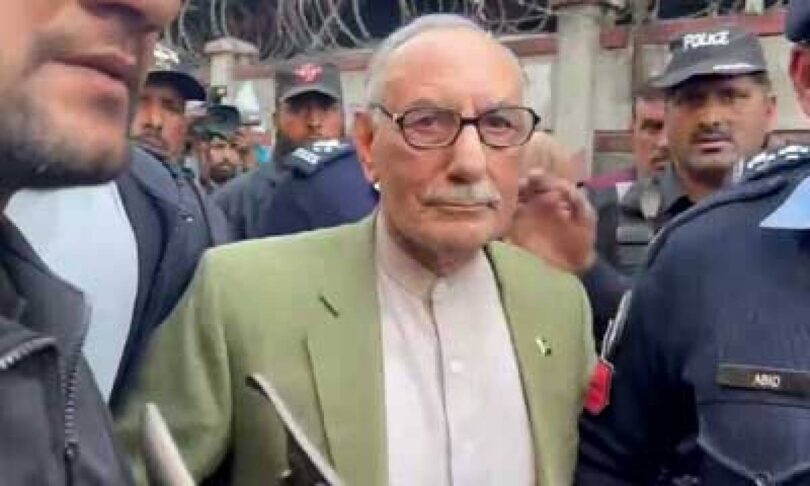A Federal Court has granted the police a three-day remand of defense analyst, YouTuber, and retired Army General Amjad Shoaib, following his arrest after a magistrate registered a case against him on charges of inciting the public against state institutions. Earlier, the Police lodged an FIR agaisnt the retired general under section 153A and section 505 for the alleged promotion of enmity between different groups and conducting public mischief, while the elderly general was arrested by the police within no time.
Media is generally considered to be the fourth pillar of the state and plays a watchdog role in ensuring transparency and accountability in governance and political affairs in the country. Media analysis, situation appreciation, and criticism highlight the drawbacks of administrative policies, and social and legal issues pertaining to public life. However, the government and opposition usually display animosity over scholarly work, media forecasts, court verdicts, opinion polls, and criticism by civil society, media, and Human Rights Defenders. The current political friction aggrandized the violent sentiments in national politics by squeezing space for non-partisan reporting, constructive criticism, and healthy journalism amid heightened inter-party rivalry in the country.
Historically, Pakistan has always been an unsafe place for journalists and scholars since its inception, while the newsmen had been arrested, punished, and hanged in the past when they criticized the policies and tried to expose the corruption of the rulers. In fact, no individual, no government, institution, as well political group, ever faces the risk of collapse, or physical or reputational harm through criticism from its adversaries including media and civil society if it exists legally and functions on merit, and transparency. Interestingly, the latest technological innovations and digital media have brought the naked truth to the public and threaten the interests of governments, cartels, and political groups while increasing security risks for journalists and truth seekers in the contemporary world. Although successive governments have framed multiple pieces of legislation to support the freedom of the press, and ensure the safety of journalists but those measures remained unimplemented so far. Meanwhile, the rulers aggressively used PECA, PEMRA, and the Police to readdress the alleged malfunctioning of the media and reporters.
Unfortunately, media outlets and anchorpersons had always faced highhandedness and repression from the ruling government throughout history because those who championed media freedom and civil liberties in opposition, added to dictatorial laws and harsh regulatory policies when grasped power. Similarly, after advocating media independence for nearly four years, the PDM leaders reinvented the policies of the previous government by harassing and arresting journalists under vague and multipurpose legislation. In fact, the ego of the rulers becomes so delicate that sane words affect like a hammer and a bombshell for it and cost years of imprisonment to intellectuals and scholars.
Undoubtedly, public institutions did not uphold their constitutional obligations and recurrently bulldozed their institutional prestige by acting as puppets of the ruling elite in the past. If an elderly veteran snubbed politicians and bureaucrats for their misdeeds he should not meet such repression from the powerful for his sane advice. As the rule does not last longer and ultimately Ministers have to seek public rating once more. So public leaders must maintain soberness if they intend to avoid remorse for their misconduct in the future.







